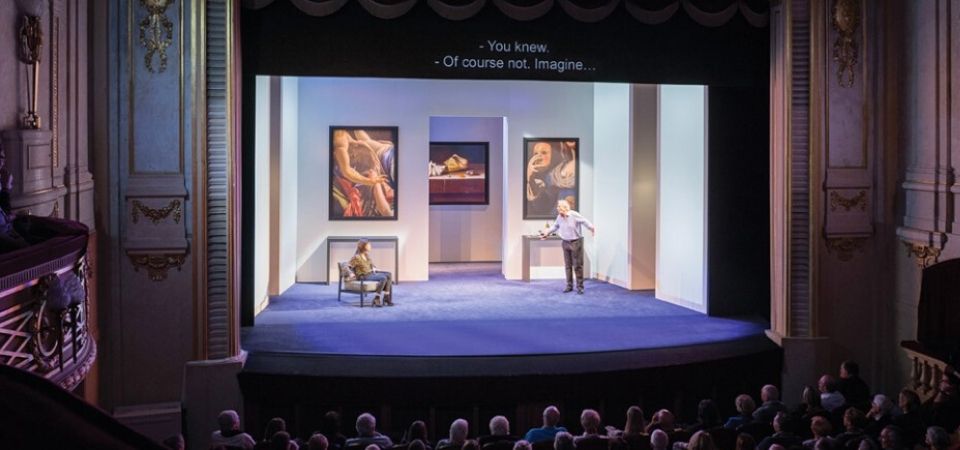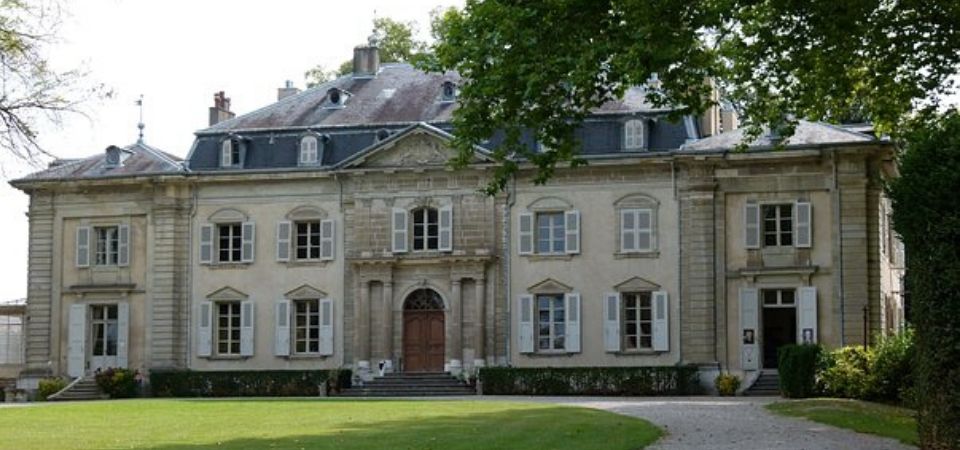- May 15, 2020
- Parisian theatre
- Sam Asher
At Theatre in Paris, one of our missions is to make France’s vibrant theatre scene accessible to everyone. One channel of accessibility that we focus on is language: we provide surtitling services for productions so that audiences who do not speak French can follow along and enjoy the show. We do all of this in the name of opening French culture with a passion for international connection. This passion to share cultures via art is not a new idea – it is human nature. In fact, one of France’s most prolific authors shared this same passion for melding together cultures: Voltaire. How did this prominent writer earn his stripes for becoming a multi-cultural advocate?
A Statue of Voltaire
Francois-Marie Arouet – known more widely for his penname Voltaire – was a distinguished yet sometimes infamous writer who upheld a large part of the Enlightenment movement in France during the 18th century. We now view the Enlightenment era as a grandiose and wonderful movement, but this wasn’t the case for the people who pushed for the ideas behind it. For example, Voltaire’s works often landed a little too close to criticizing French authority. At the time, works like “Zadig” would present characters and societies much too similar to France while posing difficult moral and religious questions to people of power. Though the stories were made up to be placed in far-off lands, his French audience could take a hint. The French who could read would devour his works, and then those who couldn’t read would hear about the ideas passed down from word-of-mouth: historians cite that this would mostly happen in public, loud spaces such as cafes or brasseries – places that are still a pinnacle part of French society today. With time, Voltaire’s ideas of questioning French society began to trickle down and spread to the public – which did not end without consequence for this now-famous philosopher.
With controversial works that often heavily critiqued French society, his writings landed him in trouble with the law several times. If you go to Place de la Bastille today, you will find a giant spire as well as the Opera de Bastille – but before these two structures were even built there existed the prison of Bastille. This prison was symbolic, as it was within the capital of France and therefore often held notable characters, most of the time to prove a point to the public. It is no surprise that Voltaire found himself imprisoned at Bastille several times, one reason because the government wanted to show that denouncing its values would not be tolerated, and a second reason being that Voltaire had gained a notable amount of success for his works. After a couple of short-term imprisonments and Voltaire not ceasing to share his ideas within his writing, the writer was set to serve another sentence. He could either be imprisoned for three years or be exiled: Voltaire chose to be exiled and fled to England. It is this exile that sparked a life-long habit of cultural exchange and of course the reason why Voltaire learned English.

Place de la Bastille today.
Though we don’t know how much English Voltaire actually spoke before going to England, we do know that he took lessons when he got there. With the help of a young Quaker named Edward Higginson to give him English lessons, Voltaire made himself comfortable in a foreign country. Often he would go to London to attend the theatre at Drury Lane – which still exists today as the Theatre Royal. There, the theatre would provide him with the text of the show so that he could follow along with what was being said. Sound familiar? That’s almost like the service we provide when providing surtitled translations to shows!

A theatre production with surtitles.
Clearly Voltaire’s lessons paid off as his first letter in English - dated Oct 26, 1726 - showed his grasp of the language (despite having common errors throughout his writing). That same year, he began to write two essays in English that would ultimately promote his new work “Henriade.” A well-known artist that the time, Mary Delany, noted that Voltaire wrote with “uncommon elegance and force in English, though he has been but eighteen months in this country.” We wish we could say the same for ourselves when learning a foreign language!
If you have multiple languages swimming around in your brain, you may have similar problems to that of Voltaire. After he returned to his native country, it is said that he found it difficult to write in his mother tongue. After some people learn a second language late in life – as Voltaire did – they find themselves using words that exist in their newly acquired tongue that may not necessarily fit in their mother tongue. These “false friends” may be words that look very similar but mean completely different things. The English language – having borrowed much of its vocabulary from the French – can have it speakers fall into this trap a lot. Take the word “battery” for example. This word sounds the same in both French and English, but means drums in one language, and a small power supply in another. Falling in love with culture, he had many English guests come to visit him at the small town in the east of France where he settled, Ferney. Voltaire’s claim was that he could swear as well as any English lord.

Voltaire’s home in Ferney.
You could be the next Voltaire! If you’re looking to immerse yourself in French theatre but are hesitant about the language barrier, why not attend a show with surtitles to expand your horizons?





